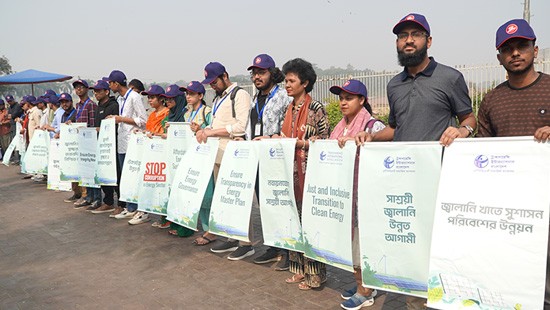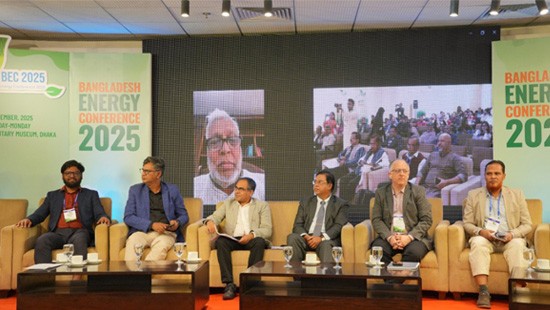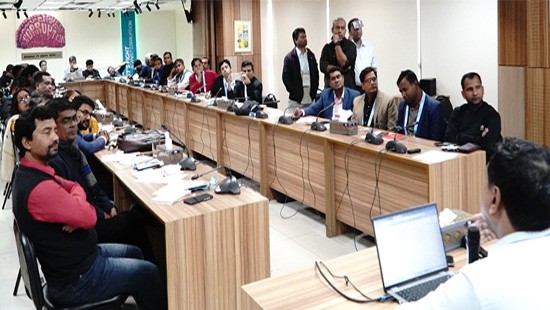Published: 17 December 2020

According to a study conducted by TIB, around 42 per cent (about 14 lakh) of the total workers employed in the RMG sector did not receive or were deprived of government incentives.
Due to a lack of interest and negligence of the government and the employers' organisations in compiling the list of pandemic-affected workers, about one million potential beneficiaries were deprived of social security assistance.
Organising a virtual press conference on 17 December 2020, TIB revealed the research study titled “RMG Sector in COVID-19 Crisis: Governance Challenges & Way Forward” to identify the governance challenges and limitations in dealing with the COVID-19 crisis. Conducted between March and November 2020, the study followed the qualitative research method.
The research data were analysed based on six indicators of good governance and relevant sub-indicators, including legal limitations and enforcement challenges, response, participation and coordination, transparency, labour rights and safety, and accountability.
Speaking at the conference, TIB Executive Director Dr. Iftekharuzzaman said that the apparel owners tended to depend on government incentives during the pandemic. Therefore, the sector’s burden has fallen on the government and the people.
Dr. Zaman said, “We have seen that about half of the total incentive money given by the government has been allocated to the ready-made garment industry. But their contribution to our GDP is only 10 per cent. The lion's share of the package has gone to the owners. The workers have only got a small part of it.”
He also said that although the employers were able to secure incentives from the government to compensate various losses, no priority was given to ensuring the workers’ rights, health protection, and safety. The owners were not active in adopting any effective action plan.

The study said that the procedural complexities of listing put factories and workers outside the garment sector owners' organisations at the potential risk of deprivation.
Besides, the study observed that the large factories have managed to get priority for receiving incentive funds. Large factory owners have been accused of using political influence and lobbying for getting incentives in some cases.
Moreover, a month-long procedural complexity of the refund from the banks to receive the money from factories made the workers living in inhuman conditions during the crisis and reluctant to use MFS account to receive their salaries and allowances on time.
The study also noted allegations that 21 thousand workers in 64 factories who were supposed to receive the incentives did not receive their salaries and allowances due to the announcement of factory lay-off and dismissal in the wake of the COVID-19 crisis.
The study analysis shows that most incentives (about 84 per cent or BDT 52,800 crores) have been distributed to the factory owners to deal with the potential business loss.
Criticising the buyer organisations, Dr. Zaman said, “We have also noticed extremely pessimistic behaviour among buyer organisations. Although some consumer organisations have taken some steps, they have not given much significance to protecting workers' rights. They have shied away from their responsibilities.”
The Executive Director said those buyer organisations put pressure on the owners and failed in ethical business practices that negatively impacted the government and the people.
Talking about the lack of good governance, Dr. Iftekharuzzaman said, “Deficiencies have been observed in almost every indicator of good governance used in the analysis of research results. There was a lack of goodwill and effective action on the part of both the government and the owners,”
Recommendations
The study placed 9 points recommendations, including the amendment of Section 18 and Section 20 of the Bangladesh Labour Act, 2006 to include the provision of job security for all classes of workers and imposing penalties failing to supply health care materials to the workers and comply with hygiene rules and revoking utilisation declaration (UD) facility in case of such violations.
TIB Research and Policy Assistant Programme Manager Nazmul Huda Mina and Deputy Programme Manager Mohammad Nure Alam Milton presented the study findings at the event.






